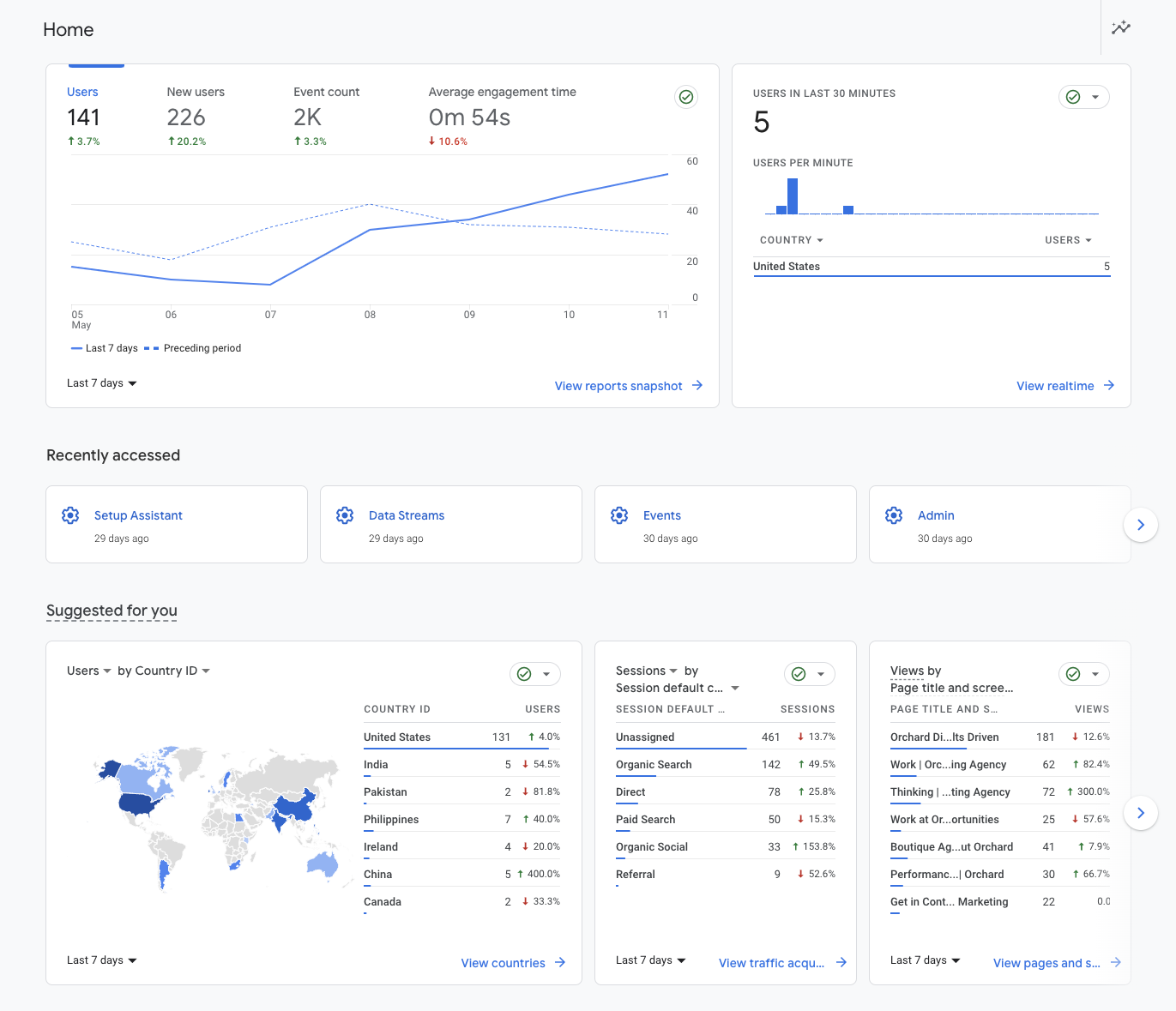GA4 Transition at a Glance
May 17, 2023
5 minute read
Share this Post:
OVERVIEW
Google Analytics 4 (GA4) is the future of Google Analytics, full of new features and improvements to help make smarter marketing decisions. This news was initially announced in October 2020, but Google started to create GA4 properties for those with GA properties, unless opted out, in March 2023. Google’s Universal Analytics (UA) will officially stop processing data on July 1, 2023, and historical data will be stored for a minimum of 6 months. Google is making strides to continuously evolve with ongoing privacy and data collection needs, while preparing for the “future of measurement.” The biggest adjustment? The platform is changing from a session-based model to an event-based model.
BENEFITS
- More flexible data collection: GA4 collects data differently than Universal Analytics, which gives you more flexibility in how you track user activity. For example, you can collect data on things like user engagement, conversions, and product usage even if users don’t complete a full session on your website or app.
- More privacy-focused: GA4 is designed with privacy in mind. It uses a number of features to help you comply with privacy regulations, such as the General Data Protection Regulation (GDPR) and the California Consumer Privacy Act (CCPA). For example, you can choose to delete user data after a certain period of time, and you can control how Google uses your data for advertising.
- More predictive: GA4 uses machine learning to surface insights that you might not be able to see with Universal Analytics. For example, GA4 can tell you how likely a user is to convert, or it can predict which users are at risk of churning.
WHAT DOES THIS TRANSITION MEAN FOR YOU?
As mentioned in the general model change, expect changes to goal tracking, available metrics and their naming conventions, and the GA interface. The new interface and improvements present an opportunity for improved custom reports regarding user path exploration, segment overlapping, cross-device measurement and more, which also means additional opportunities within Google’s Looker Studio. GA4 will also offer more privacy control capabilities, allowing cookie-less measurement, behavioral modeling, and conversion modeling. Previously cookies were used to track users and their behavior, moving forward Google will use other methods used to track behavior including Google Signals.

In addition to learning and adjusting to the new interface and capabilities, the switch to GA4 means an imminent change to multiple common reporting metrics/KPIs. Commonly used metrics like Bounce Rate and Total Events will no longer be available and instead will present themselves within other metrics, Engagement Rate and Event Count respectively. In addition, conversions, defined goals that indicate which user action is considered a conversion, will now need to specify a conversion EVENT for each action that should count as a conversion and the platform will now count every instance of the conversion event, even if the same conversion event is recorded multiple times during the same session.
NEXT STEPS
All 360 Universal Analytics properties will migrate to GA4 as of July 1st. Google has created a step-by-step guide to help users through the basic GA4 setup. While Google created GA4 accounts for those who hadn’t gotten started yet in March, the data being collected is just the basics. To minimize the impact of the switch from UA to GA4, users will need to set up custom events, reports, data settings, and more to ensure they are still collecting all necessary data to continue to support business and/or marketing decisions. Additionally, it’s important to document a data storage plan for historical data from UA, as historical data will not be available in GA4. Expect to hear of additional learnings about the new property as more marketers and analysts make the full transition.
Fueling the Content Machine: Solving the Demand for Speed, Volume, and Quality
In the fast-paced world of digital marketing, content production fuels brand visibility and engagement. However, meeting the growing demand for...
The Halo Effect, UX & How to Increase User Perceptions
Have you ever visited a website and thought, “Wow. This site is well designed. They must have a great product?” On the other hand, have you ever...

